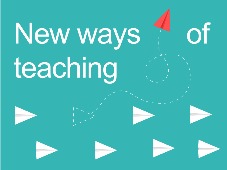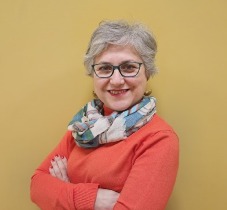Working with discomfort in the classroom

In this monthly blog about new ways of teaching, educators talk about their innovative, creative and impactful teaching initiatives. From unusual teaching methods to new technologies - everything is covered. How did these ideas come about and what impact does it have on students?
This month: Sepideh Yousefzadeh , Associate Professor Intersectional Wellbeing and Decoloniality at Campus Fryslân on working with discomfort in the classroom.
I was trained as a midwife in Iran in the late 80s. It was the first time I lived in a different city, and everything became a new adventure in my life: cooking, finding a new social network or understanding the biology professor. Soon I started learning the practical skills in health clinics, and I still remember the fear of what if I do harm to human bodies, to mothers or babies. Yet, there was no chance to check in with my emotions. All the courses focused on teaching us concepts and theories.
When I reflect back on those days now, as an educator, I can see the strong focus the education system had on students’ cognitive and technical skills. By the time I graduated, I was technically confident to attend to pregnant mothers. I also became an expert in bottling up my emotions, which took me years to learn to undo that. I don’t think if the midwifery program, that university or Iran were exceptional cases to treat emotions with that approach. That was more or less the norm at that point of time globally.

Today, after a few decades, often, the one and only task of the teachers in the classroom is still nurturing the cognitive capacities of students. This is while there are more triggers for the youth to be scared or stressed about especially in humanities courses. On the one hand the courses focus on social (in)justice; on the other hand, social media makes it possible for students to follow the news on all those topics and see the human face of adversities as they happen.
In this context, I see my roles, as an educator, to understand how students react emotionally to intense topics such as health inequalities, and how they navigate in academia emotionally. I started acknowledging students’ emotional responses in the classroom with teaching a course on diversities and intersectionalities. I realized that many of my young students, learn about gendered or racial health inequalities for the first time in my classes. Many of them were learning for the first time about the legacies of colonialism that are still present in healthcare. This could make them feel overwhelmed, and I decided to apply pedagogies that help students acknowledge and share those feelings in the classroom.
Collaborating with artists and providing arts-based assignments to accommodate students’ emotions has been effective methods that I use when I teach about social justice in the context of health and activism. I began to do so in the class of Responsible Activism and Global Health in 2021. The course was running during the pandemic and we started the class in the midst of the lockdown. We had to ran the lectures and coaching students with their creative assignments online.
Two artist colleagues collaborated with me to mentor students and coach them in designing performances (Alessandro Savenije), or creating comic strips (Arnaldo Tagliacozzo). In 2022, I repeated the arts-based assignments again when next to the pandemic and the coming back of Taliban in Afghanistan, the war in Ukraine also hit us and it was impossible not to tackle student’s sense of fear or helplessness during the discussions. Some students worked as a group on their art assignments and some on their own. Some focused on the war and some on other personal topics. They were all passionate.
A holistic approach to education, where the body, mind and the soul are taking into consideration in the classroom is not new. Decolonial approaches to teaching pay close attention to students’ emotions in the classroom (Ng, 2018) (Flockemann, 2020) (Yousefzadeh, 2022).
Having worked with this approach in different classes and courses, I believe students should be given the choice to share their emotions. Not all students may be in a place to engage with art or share their emotions. Coaching by artists with experience in social justice topics is indispensable. Finally, lecturers may also need to be prepared for the emotional labor and share their own vulnerabilities in the class, to be able to create a safe and trusting space.
Further reading
Sources
-
Flockemann, M. (2020). “Connecting Mind to Pen, to Eyes, to Face, to Arms and Legs”: Toward a Performative and Decolonial Teaching Practice. Cambridge Journal of Postcolonial Literary Inquiry, 7(3), 286-296.
-
Macrine, S. L., & Fugate, J. (2021). Translating embodied cognition for embodied learning in the classroom. Paper presented at the Frontiers in Education, 337.
-
Millner, N. (2022). Unsettling feelings in the classroom: scaffolding pedagogies of discomfort as part of decolonising human geography in higher education. Journal of Geography in Higher Education, , 1-20.
-
Ng, R. (2018). Decolonizing teaching and learning through embodied learning. Sharing Breath: Embodied Learning and Decolonization.Athabasca UP. Https://Edtechbooks.Org/-NWU ,
-
Yousefzadeh, S. (2022). “The light made us uncomfortable at the beginning, but we don’t want it to turn off again”: On decolonization and global health teaching. International Journal for Students as Partners, 6(2), 128-134.
More news
-
15 September 2025
Successful visit to the UG by Rector of Institut Teknologi Bandung
